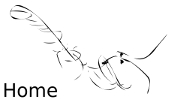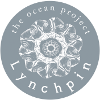Living Data:
Inclusion
2018 Conversations
Disclaimers, Copyrights and Citations
Conversations/Index 2010 2011 2012 2013 2014 2015 2016 2017 2018 2019 2020 2021 2022 2023 2024
Can Living Data influence science education?
Alex Richardson is a graduate of Environmental Science, and of Education, at the University of Technology Sydney (UTS). I first meet Alex at the 2014 Living Data: Evolving Conversations exhibition at UTS. We meet again by chance at the Enmore Theatre, Newtown, selling tickets to Yothu Yindi. I was curious to know how seeing Living Data may now influence his approach to teaching.
On Sunday 16th January Alex visits me at home.
Lisa:
Can you cast your mind back the the 2014 Living Data exhibition at UTS.
Alex:
Yes, I was trying to think about it over the last few weeks.
Lisa:
I can't remember if it was you or Rachael [Rachael Leer, a sound artist who contributed an exhibit for the 2014 exhibition, Living Data: Evolving Conversations] who said, "...Oh, this is so different. It's a whole new movement"
Alex:
Mmm.
Lisa:
And I was really interested to know what you meant by that.
Alex:
... There's this fundamental ah... I think I'm only just realising these past few years that even though science has facts and whatnot, we are not a computer, and so we live using an emotional tool, and a tool that has values and beliefs that change how we interpret facts, and so I think to fight, to try and pretend we're not using a tool, an emotional tool that has past experiences, is a pointless battle, in order to work with that, things like interpreting science in a more emotional way in terms of art and that sort of thing, is a step in the right direction.
I don't remember any specific art works to be honest. I remember more the feeling I left with.
Lisa:
Great! That was the idea. There is no one art work, or no one science paper, that really does it for some people. We have to get it in multiple ways.
So you got a message about the Reef [the Great Barrier Reef].
Alex:
Yeah
Lisa:
You got some science and some art information about the Reef.
Alex:
It made me feel like I'd better... maybe not do something directly, but certainly do something about it. And sometimes I wonder, why aren't I going off and doing something like a job that involves that directly, and then I think well... hang on, I'm being a science teacher. If I strive to be a really good science teacher then hopefully that's doing something in a way.
Lisa:
Absolutely. You can inspire those students to think, and to feel.












